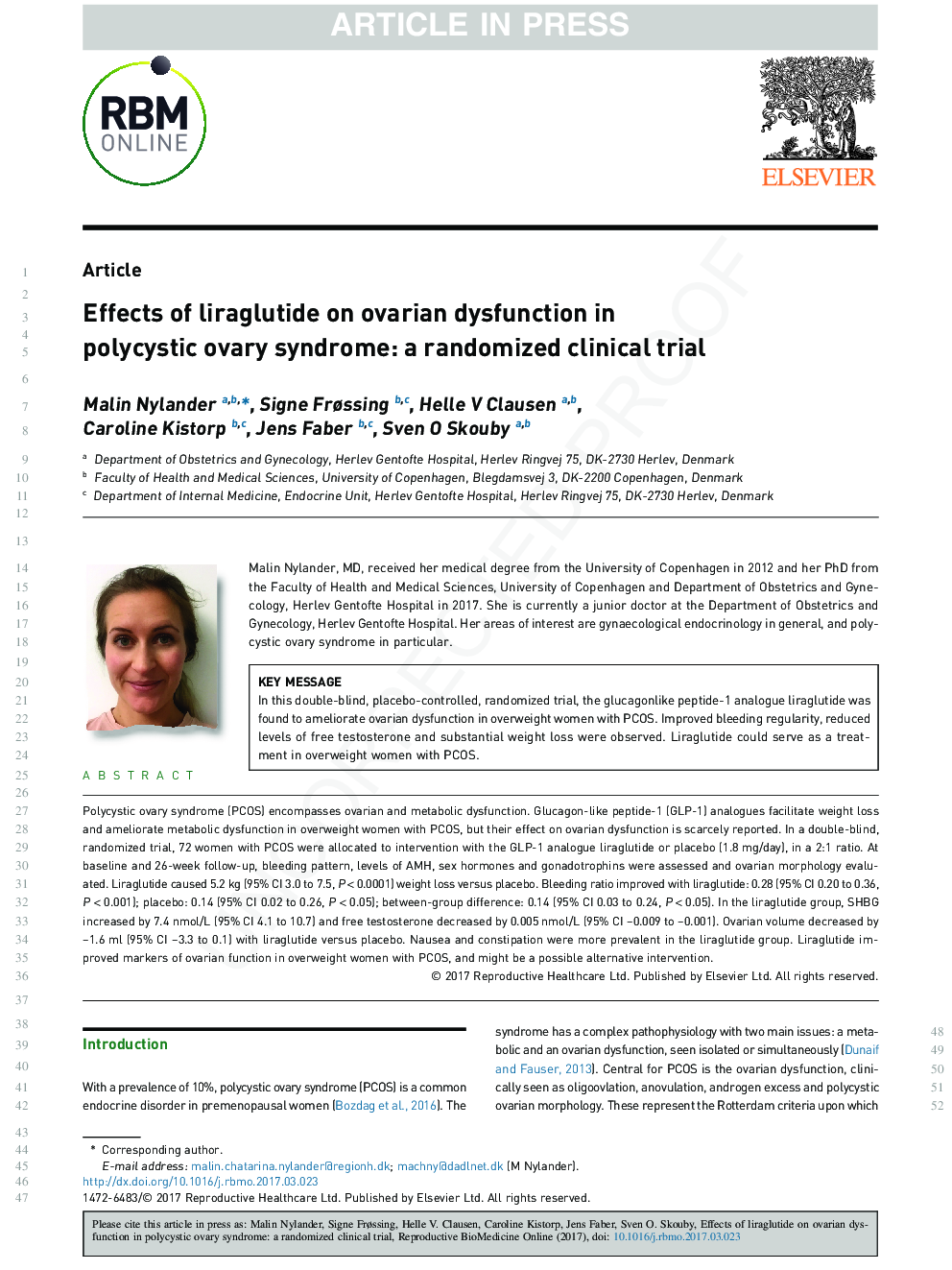| Article ID | Journal | Published Year | Pages | File Type |
|---|---|---|---|---|
| 5696674 | Reproductive BioMedicine Online | 2017 | 7 Pages |
Abstract
Polycystic ovary syndrome (PCOS) encompasses an ovarian and a metabolic dysfunction. Glucagon-like peptide-1 (GLP-1) analogues facilitate weight loss and ameliorate metabolic dysfunction in overweight women with PCOS, but their effect on ovarian dysfunction is scarcely reported. In a double-blind, randomized trial, 72 women with PCOS were allocated to intervention with the GLP-1 analogue liraglutide or placebo (1.8âmg/day), in a 2:1 ratio. At baseline and 26-week follow-up, bleeding pattern, levels of AMH, sex hormones and gonadotrophins were assessed and ovarian morphology evaluated. Liraglutide caused 5.2âkg (95% CI 3.0 to 7.5, P < 0.0001) weight loss compared with placebo. Bleeding ratio improved with liraglutide: 0.28 (95% CI 0.20 to 0.36, P < 0.001); placebo: 0.14 (95% CI 0.02 to 0.26, P < 0.05); between-group difference: 0.14 (95% CI 0.03 to 0.24, P < 0.05). In the liraglutide group, SHBG increased by 7.4ânmol/L (95% CI 4.1 to 10.7) and free testosterone decreased by 0.005ânmol/L (95% CI â0.009 to â0.001). Ovarian volume decreased by â1.6âml (95% CI â3.3 to 0.1) with liraglutide versus placebo. Nausea and constipation were more prevalent in the liraglutide group. Liraglutide improved markers of ovarian function in overweight women with PCOS, and might be a possible intervention.
Keywords
Related Topics
Health Sciences
Medicine and Dentistry
Obstetrics, Gynecology and Women's Health
Authors
Malin Nylander, Signe Frøssing, Helle V. Clausen, Caroline Kistorp, Jens Faber, Sven O. Skouby,
